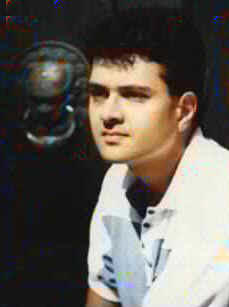Joint Statement on Religion
In 1995, a joint statement of current law regarding religion in
public schools was published by a variety of religious and civil liberties
organizations.
This statement served as the basis for U.S. Department of Education
guidelines intended to alleviate concerns about constitutional religious
activities in schools.
Here are general rules concerning what school personnel and students may do:
Students have the right to pray or to discuss their religious views with
their peers so long as they are not disruptive.
The history of religion and comparative religion are permissible school
subjects so long as the approach is objective and serves a legitimate
educational purpose.
Students may study the role of religion in the history of the United States.
Schools may discuss various religious groups‚ beliefs about the origin of
life on Earth in comparative religion or social studies classes.
Students may express their religious beliefs in the forms of reports,
homework and artwork so long as such expression meets the other criteria of
the assignment.
Religious or anti-religious remarks made in the ordinary course of classroom
discussion or student presentations and that are germane are permissible,
but students do not have the right to give sermons to a captive audience.
Students have the right to distribute religious literature to their
classmates, subject to reasonable time, place and manner restrictions.
Students have the right to speak to, and attempt to persuade their peers
about religious topics just as they do with regard to political topics.
Student religious clubs in secondary schools must be permitted to meet and
to have equal access to campus media to announce their meetings.
Public schools may teach objectively about religious holidays and may
celebrate the secular aspects of the holiday.
Students may wear religious messages on clothing, just as they may wear
religious attire, such as yarmulkes and head scarves.
Students may be released for religious instruction off school premises.
Students may read the Bible or other religious literature during their free
time at school.
Faith groups that support the First Amendment and oppose
government-sponsored prayer in public schools include:
National Council of Churches; American Baptist Churches, USA; Christian
Church (Disciples of Christ); The Episcopal Church; Evangelical Lutheran
Church in America; Friends Committee on National Legislation; Mennonite
Central Committee USA; Presbyterian Church (USA); General Conference of
Seventh Day Adventists; United Church of Christ; United Methodist Church;
Unitarian Universalist Association; American Jewish Congress;
Anti-Defamation League; Central Conference of American Rabbis; National
Council of Jewish Women; North American Council for Muslim Women; Soka
Gakkai International USA.
Most religious denominations, across the theological spectrum, have issued
formal statements supporting the Supreme Court’s prayer and Bible-reading
decisions. These people of faith value the hard-won freedom of conscience
that belongs to all of us.
Go on to: Keep church and state separate!
Return to: Articles


